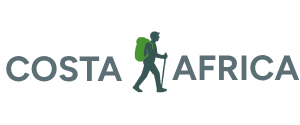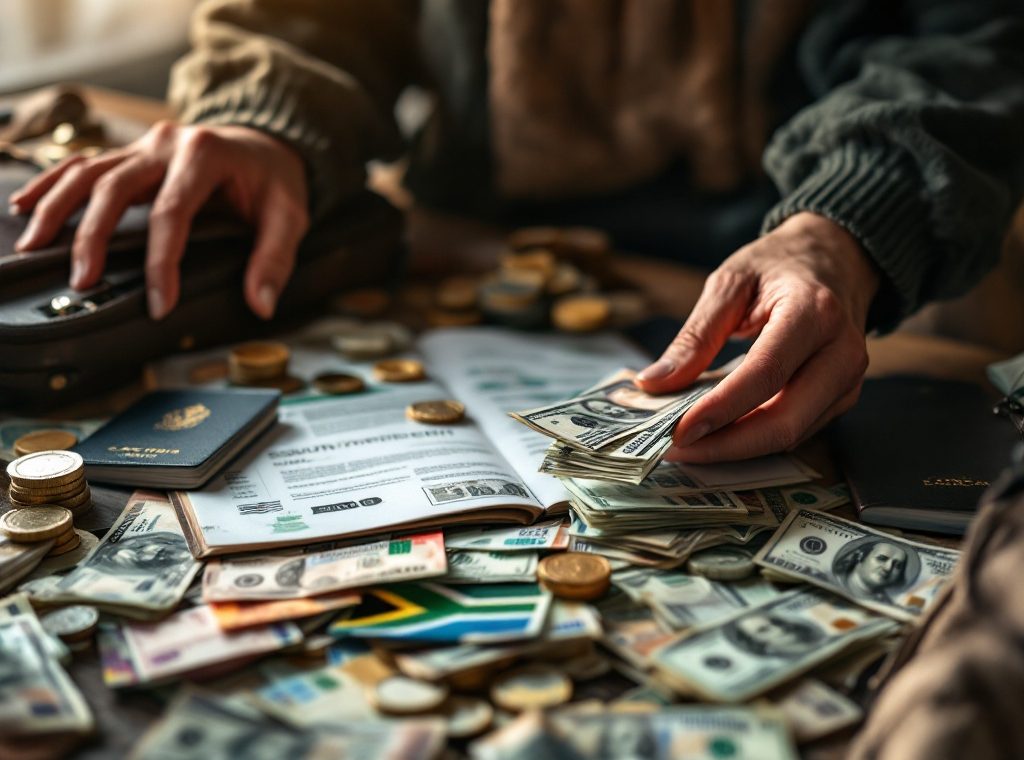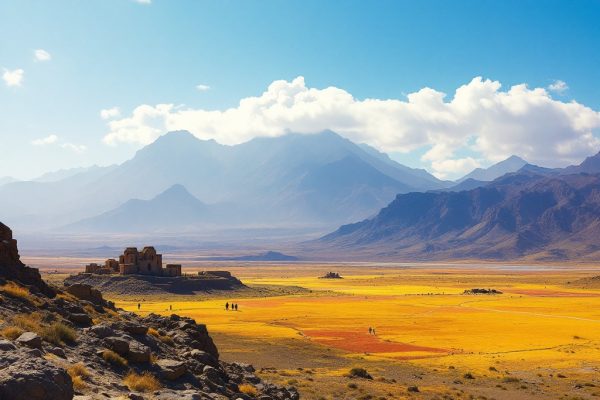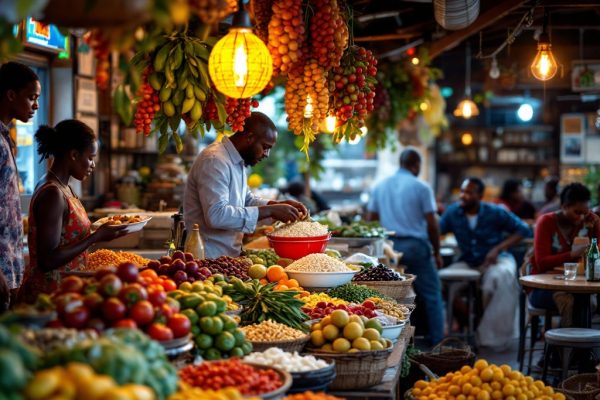How Much Money Can I Have When Traveling to Africa?
Traveling to South Africa? Avoid costly penalties by understanding cash limits. You can bring in any amount of cash, but amounts over USD 10,000 must be declared. Leaving? You can take up to ZAR 25,000 without notifying customs. Ignoring these rules can lead to fines and confiscation. Learn how to declare cash properly and manage your money safely on your African adventure. Read on to ensure a smooth trip!
Important information
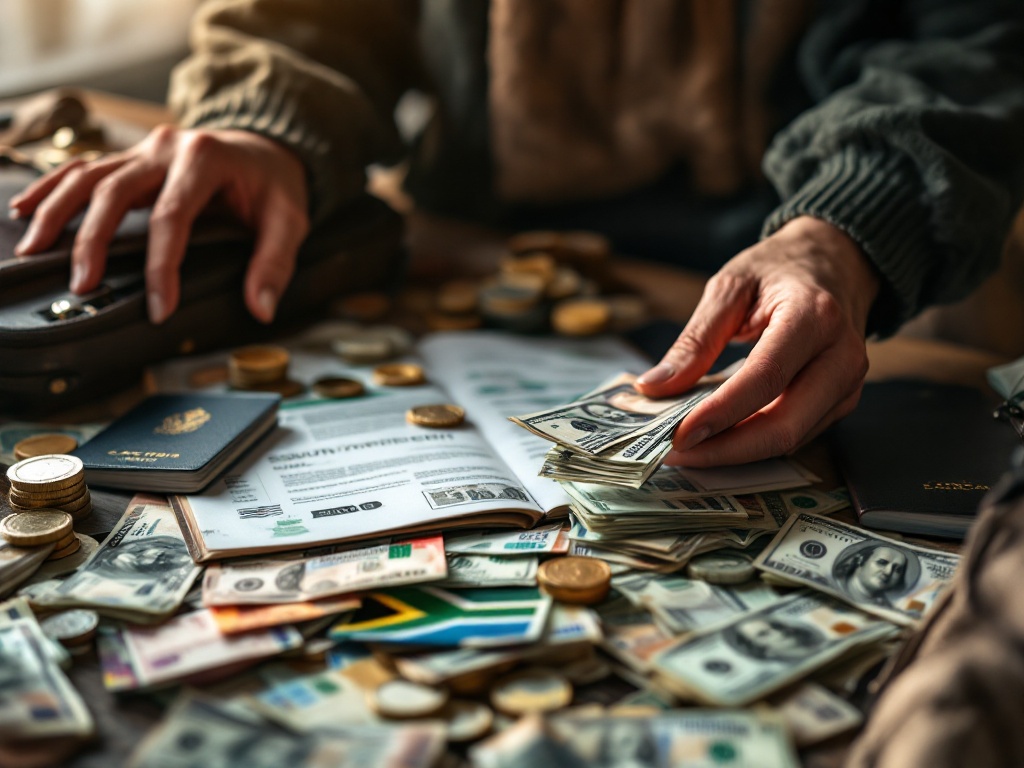
- When leaving South Africa, declare cash amounts over ZAR 25,000.
- When entering South Africa, declare any amount exceeding USD 10,000.
- Failing to declare cash can result in penalties like fines, confiscation, or legal action.
- Cash is widely accepted, especially in informal markets, but cards offer security for larger purchases.
- Plan your travel budget, use ATMs safely, and divide your cash for security.
Understanding Cash Limits When Traveling to Africa
Traveling to or from South Africa? Be aware of cash limitations. When leaving the country, you can take up to ZAR 25,000 without informing customs. Amounts exceeding this must be declared. When entering South Africa, declare any amount over USD 10,000. For larger sums, always declare at customs upon arrival and departure. This includes amounts exceeding ZAR 25,000 when departing and USD 10,000 when arriving. Failure to declare excess cash can result in penalties, including fines, confiscation, or legal action.
What Are the Cash Limits for Entering and Exiting South Africa?
Bringing cash into South Africa has no upper limit, but amounts exceeding $10,000 (or equivalent in other currencies) must be declared to customs. Sums over R25,000 require pre-authorization from the South African Reserve Bank (SARB). Ensure you have the necessary supporting documentation.
What Happens If You Exceed Cash Limits?
Traveling to South Africa with excessive undeclared cash can result in its confiscation. To avoid penalties and safeguard your funds, declare any amount exceeding the prescribed limit. Full disclosure protects your money.
Currency Regulations and Customs Declarations
Declaring currency is vital for governments to monitor money flow and combat illicit activities like money laundering. It also supports customs enforcement by providing accurate data on cross-border currency movement, ultimately bolstering financial transparency and security.
Complete the required forms. These forms typically ask for the amount and type of currency you are carrying.
Present the completed forms along with your passport and travel documents to customs officials upon arrival.
Be prepared to answer questions about the declared funds. Procedures may vary between countries, so be sure to check specific regulations for your destination.
Failure to declare currency can lead to serious penalties. These penalties can include: confiscation of the undeclared cash, hefty fines, and even potential prosecution. The severity of the penalties depends on the specific country’s regulations and the amount of undeclared currency. Accurate declaration is crucial to avoid these repercussions.
Why Is It Important to Declare Currency?
Declaring your currency is crucial to avoid legal issues and ensure you comply with regulations, protecting you from penalties such as asset forfeiture. Accurate declarations also make your travel smoother. Remember to declare any amount exceeding $10,000 USD, including cash, checks, and money orders. Regulations vary across African countries, so always check the specific rules for your destination.
How to Declare Cash at African Customs
If you’re carrying more than 25,000 ZAR in cash, you’ll need to declare it. Complete the customs form before your flight to South Africa for a smoother arrival.
What Are the Penalties for Non-Declaration?
Failing to declare excess cash when entering or leaving South Africa can lead to serious repercussions, including confiscation, substantial fines, and even imprisonment. Declare any amount exceeding the permitted limit to avoid these penalties.
Currency Options: South African Rand and Other African Currencies
Understanding exchange rates is crucial for planning your travel budget, especially when visiting South Africa. Familiarize yourself with the current exchange rate between your home currency and the South African Rand (ZAR). Fluctuations can significantly impact your spending power, so using a currency converter app and staying updated on current rates is highly recommended.
Using Local Currency (ZAR)
Using the local South African Rand (ZAR) offers practical benefits, especially for smaller purchases, tips, and navigating local markets.
Using Foreign Currencies
While “hard currencies” like the USD, EUR, and GBP are widely accepted, exchanging small amounts of your hard currency into ZAR as needed is a smart strategy.
Keep in mind that most African currencies, excluding the South African Rand (ZAR), are difficult to exchange once you’ve left the country.
Exchange Rates: What to Know Before You Travel
Find the current mid-market exchange rate, the midpoint between buying and selling prices, to establish a benchmark.
Be aware of fees. Banks and exchange bureaus add fees, impacting the final amount you receive.
Consider a prepaid travel card to lock in an exchange rate, protecting yourself from market fluctuations.
Compare exchange rates. Check rates from banks, bureaus, and online platforms.
Plan ahead. Exchange currency in advance to avoid unfavorable airport rates.
Should You Use Local Currency or Foreign Currency?
Using local currency simplifies smaller transactions, especially at roadside stands and local markets. Many smaller businesses may not accept foreign currency. While US dollars might be used in tourist areas, using local currency streamlines the process, especially in cash-based economies. This ensures smoother, more efficient transactions.
Travel Allowance and Cash Management Tips
Planning your travel allowance is crucial for a stress-free trip. First, estimate your daily expenses, including accommodation, meals, activities, and transportation. Researching average prices at your destination helps establish a realistic budget. Include a buffer for unforeseen costs or emergencies.
Managing your money smartly
Credit and debit cards offer convenience and security for most purchases. Inform your bank of your travel dates to prevent card blockage. Use ATMs to withdraw local currency as needed.
Cash handling tips
Keep small bills handy for tips and smaller purchases, as vendors often prefer cash. Divide your cash and store it in multiple locations for security. Track your spending to stay within your budget.
How to Plan Your Travel Allowance
Plan your daily expenses, including meals, transportation, and souvenirs. Cash can be essential, as smaller vendors may not accept cards. A well-planned budget not only tracks your spending but also helps you stay within your financial limits.
Essential Tips for Managing Cash While Traveling
For everyday spending, prioritize smaller denominations of cash and coins to minimize potential losses. Distribute your money across multiple secure locations instead of carrying large sums. While ATMs in well-lit and safe areas are convenient, avoid relying on them as your sole source of cash.
Managing Money During Your Trip
Traveling through Africa requires a strategic approach to finances. While major credit cards are accepted in city hotels and larger restaurants, cash remains essential for smaller businesses, local markets, and transportation. Carrying a mix of payment methods is recommended for a smooth and hassle-free trip.
Budgeting
Establishing a daily spending limit based on pre-trip research is crucial. Remain flexible and consider opting for public transport and local eateries to save money. Monitor your expenses daily to stay within your budget.
Cash Handling
When carrying cash, divide it between a money belt, a hidden luggage pocket, and smaller amounts for daily use. Withdraw cash from ATMs located in secure areas. Exercise caution when handling money in public.
Cash vs. Card: What Is the Best Payment Method?
While cash is king in Africa’s informal markets and tech-limited areas, cards provide added security and convenience, especially for larger purchases. Imagine avoiding the hassle of carrying large sums of cash! Consider ATM accessibility and your spending habits. Choosing the right payment mix will ensure a smoother, stress-free African adventure. Here’s a helpful guide:
Cash
- essential for informal markets and rural areas,
- useful for small daily purchases,
- accepted almost everywhere.
Cards
- safer for carrying larger sums,
- convenient for larger purchases,
- accepted in major cities and tourist hubs.
Planning Daily Expenses and Budgeting
Create a practical budget: estimate costs for accommodation, food, transportation, activities, and incidentals. Pre-trip research is crucial for a realistic budget.
Set daily spending limits: this helps manage cash flow and stay within your budget.
Track expenses throughout your trip: this allows for adjustments and keeps you on track.
Use both cash and cards: this provides financial flexibility during your travels.
How to Safely Carry and Manage Cash
Protect your money while traveling by using a money belt or hidden pouch. Carry only the cash you’ll need for each day. Exercise caution when handling money, particularly in crowded areas. Avoid displaying large sums of cash. Remain vigilant about your surroundings and use ATMs located in safe, well-lit locations. Minimize large withdrawals and consider convenient alternatives like credit and debit cards or secure mobile payment services such as M-Pesa.
Use a money belt or hidden pouch to protect your money.
Carry only the necessary cash for each day.
Exercise caution when handling money in crowded areas.
Avoid displaying large amounts of cash.
Be mindful of your surroundings.
Use ATMs in safe and well-lit locations.
Minimize large cash withdrawals.
Consider using credit cards, debit cards, or secure mobile payment options like M-Pesa.
